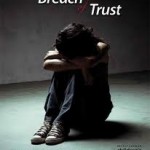Does the Constitution Protect the OWI Suspect?
No. I am willing to argue that no other crime has caused lawmakers and courts of this land to bend the Constitution more than drunk driving. The traditional ideals we have in criminal law of a defendant’s Constitutional protections, such as your right to be free from illegal stop, search, or seizure; your right to fully cross examine your accuser; your right to present a defense; and your right to due process, have been slowly eroded away over the years to the extent that many of these defenses and rights are extinct.
The problem traces its way back to the legislature’s constant bogeyman, the need to protect the public, an important and serious role. Drunk driving has been a danger to society in the United States since there has been alcohol (I would guess long before 1776) and modern automobile transportation (let’s just go back to 1908 and the Model T). Safe to say, it has been a while. What we may think of as the modern attitudes and laws about drunk driving really only stretch back 30 years. In this vein, let’s take a modern look at drunk driving law and policy as it stands today.


